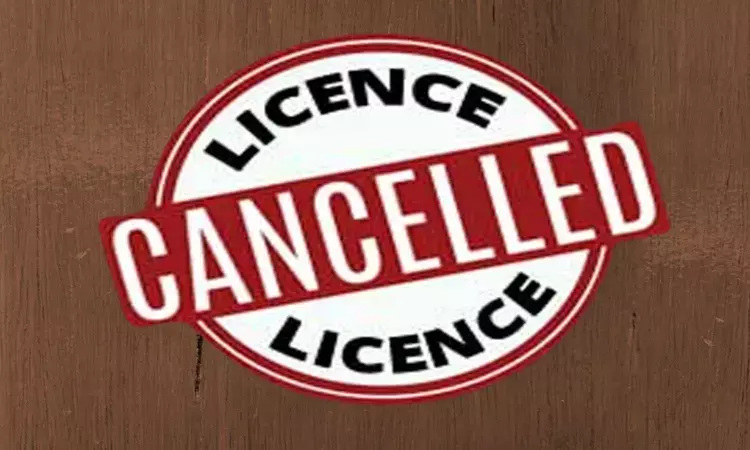- Home
- Medical news & Guidelines
- Anesthesiology
- Cardiology and CTVS
- Critical Care
- Dentistry
- Dermatology
- Diabetes and Endocrinology
- ENT
- Gastroenterology
- Medicine
- Nephrology
- Neurology
- Obstretics-Gynaecology
- Oncology
- Ophthalmology
- Orthopaedics
- Pediatrics-Neonatology
- Psychiatry
- Pulmonology
- Radiology
- Surgery
- Urology
- Laboratory Medicine
- Diet
- Nursing
- Paramedical
- Physiotherapy
- Health news
- Fact Check
- Bone Health Fact Check
- Brain Health Fact Check
- Cancer Related Fact Check
- Child Care Fact Check
- Dental and oral health fact check
- Diabetes and metabolic health fact check
- Diet and Nutrition Fact Check
- Eye and ENT Care Fact Check
- Fitness fact check
- Gut health fact check
- Heart health fact check
- Kidney health fact check
- Medical education fact check
- Men's health fact check
- Respiratory fact check
- Skin and hair care fact check
- Vaccine and Immunization fact check
- Women's health fact check
- AYUSH
- State News
- Andaman and Nicobar Islands
- Andhra Pradesh
- Arunachal Pradesh
- Assam
- Bihar
- Chandigarh
- Chattisgarh
- Dadra and Nagar Haveli
- Daman and Diu
- Delhi
- Goa
- Gujarat
- Haryana
- Himachal Pradesh
- Jammu & Kashmir
- Jharkhand
- Karnataka
- Kerala
- Ladakh
- Lakshadweep
- Madhya Pradesh
- Maharashtra
- Manipur
- Meghalaya
- Mizoram
- Nagaland
- Odisha
- Puducherry
- Punjab
- Rajasthan
- Sikkim
- Tamil Nadu
- Telangana
- Tripura
- Uttar Pradesh
- Uttrakhand
- West Bengal
- Medical Education
- Industry
Manufacturing licence of Marion Biotech cancelled by UP authority over cough syrup adulteration

Noida: The manufacturing licence of Noida-based pharmaceutical firm Marion Biotech was cancelled on Wednesday by Uttar Pradesh authorities, according to officials.
Marion Biotech’s cough syrup Dok-1 was linked with the death of 18 children in Uzbekistan. The incident which happened last December had prompted central and state drug authorities in India to launch a probe into the matter.
“The firm’s licence was under suspension since January after which a detailed inquiry was initiated. Now the licence of the firm has been cancelled by the Uttar Pradesh Drugs Controlling and Licensing Authority. The firm can no longer manufacture the syrup,” a government official said.
Read also: Centre recommends UP Drug Controller Authority to cancel manufacturing licence of Marion biotech
On March 3, the Noida Police had arrested three employees of Marion Biotech from its office in Sector 67 while a lookout notice was issued for two of its directors after an FIR was lodged against all of them, the official said.
Read also: 3 employees of Noida-based Marion Biotech arrested
The FIR had come in the wake of investigation’s finding that samples of Marion Biotech’s drugs were “adulterated” and “not of standard quality.” The samples were sent to the government’s regional drug testing laboratory in Chandigarh and 22 of them were found to be ‘not of standard quality’ (adulterated and spurious), according to the FIR.
The FIR has been lodged under Indian Penal Code sections 274 (adulteration of drugs), 275 (sale of adulterated drugs), 276 (sale of drug as a different drug or medical preparation) as well as under Section 17 (misbranded drugs) and related violations of the Drugs and Cosmetics Act, 1940.
Marion Biotech had come under the scanner in December last year for its cough syrup Dok-1 that is suspected to have led to the death of 18 children who consumed it in Uzbekistan after which the CDSCO launched a probe into the matter.
The production licence of the firm was suspended in January after inspections at its site by the central and the state drug authorities in the wake of the controversy.
On January 12, the World Health Organization (WHO) had also issued a ‘medical product alert’, referring to two substandard (contaminated) products, identified in Uzbekistan and reported to it on December 22, 2022.
“The two products are Ambronol syrup and DOK-1 Max syrup. The stated manufacturer of both products is MARION BIOTECH PVT LTD, (Uttar Pradesh, India). To date, the stated manufacturer has not provided guarantees to WHO on the safety and quality of these products,” the WHO had stated then.
“Laboratory analysis of samples of both products, undertaken by national quality control laboratories of the Ministry of Health of the Republic of Uzbekistan found both products contained unacceptable amounts of diethylene glycol and/or ethylene glycol as contaminants,” it had noted.
Ruchika Sharma joined Medical Dialogue as an Correspondent for the Business Section in 2019. She covers all the updates in the Pharmaceutical field, Policy, Insurance, Business Healthcare, Medical News, Health News, Pharma News, Healthcare and Investment. She has completed her B.Com from Delhi University and then pursued postgraduation in M.Com. She can be contacted at editorial@medicaldialogues.in Contact no. 011-43720751


